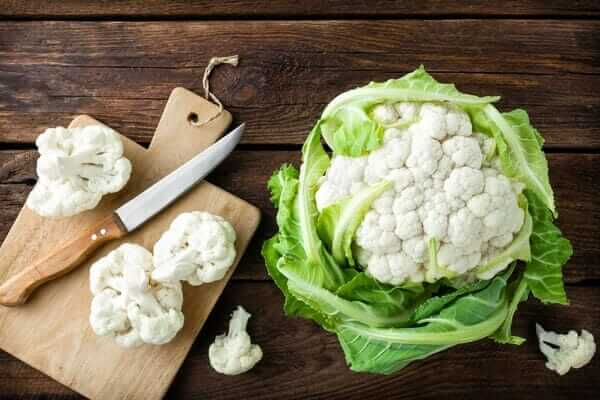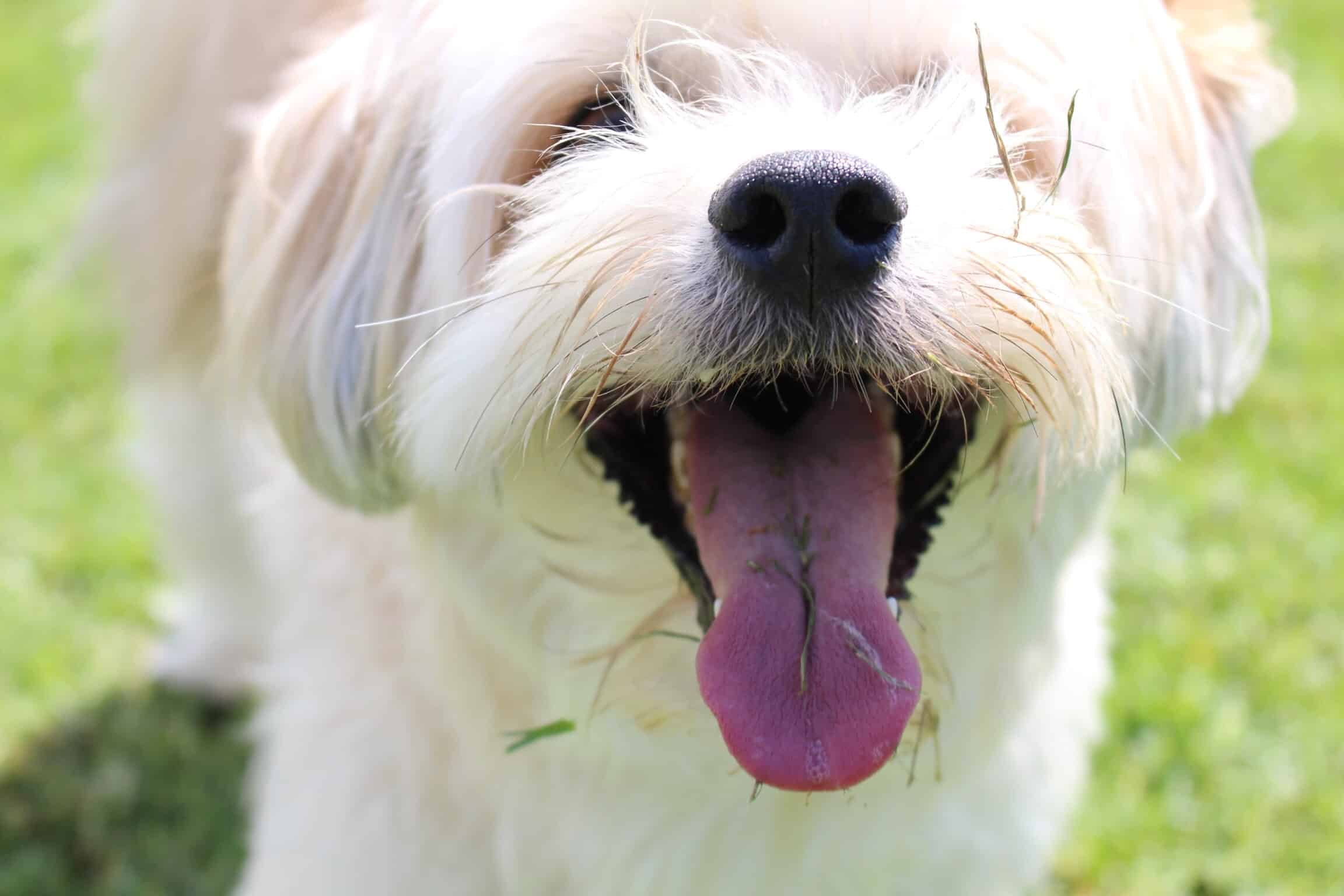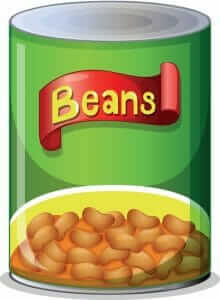
Vegetables are a good source of various vitamins, minerals and antioxidants. For people and dogs alike.
Cauliflower, for example, is as healthy as a vegetable gets. With a mild taste that complements any dish, cauliflower is filled with vitamins and fibers.
So, can dogs eat cauliflower? Absolutely.
The real question is how much cauliflower you should give to your dogs. And what
other veggies are safe for your pup?
Cauliflower

Can dogs eat cauliflower? As we know, dogs can eat cauliflower.
But as with anything you want to feed your dog with, please consult your vet before giving your dog cauliflower.
This particular vegetable should be given in moderation and it is best that you serve it prepared and not feed your dog raw cauliflower as it can cause gas. Larger dogs will obviously be able to eat large amounts of cauliflower, however, always approach this with moderation as too much of this vegetable can cause digestive problems and make dogs gassy. And causing colon health problems for your dog is not something that you want.
Raw cauliflower can be boiled, steamed or roasted and it’s best not to season the ones you plan on giving to your pet as most seasonings are bad for dogs. Especially salt and any kind of onion or garlic, even garlic or onion powder, because these vegetables are toxic for dogs and can cause them issues.
And you should always remove cauliflower stalks before feeding your dog.
If you’re not sure how to prepare cauliflower for your dog, knowing cauliflower recipes can help. There are some great cauliflower recipes out there for you to try and your dog to enjoy.
Nutrition
Many dog owners might still wonder: can dogs eat cauliflower?
Cauliflower contains many useful vitamins, including vitamin C and K, as well as minerals potassium and calcium. It is also full of fibers which is a great addition to your dog’s protein diet.
Cauliflower is also very low in calories so if you are watching the calorie intake of your dog, cauliflower can be a good way to go.
Filled with antioxidants, cauliflower has an anti-inflammatory effect and can help in boosting your dog’s immune system.
But always have in mind that cauliflower is just a side dish, served in moderation, and should not be the main source of food.
Health Benefits
Because of the nutritional values it can offer your dog, cauliflower is good for your dog’s health. Research shows that cauliflower can be connected with lessening the risk for certain illnesses, such as diabetes and cancer.
As you can see, there are many health benefits to cauliflower. You should definitely eat it, but you can also share it with your furry friend.
With this we have answered the important question: can dogs eat cauliflower? We have learned that dog food should be enriched with vegetables dogs can eat.
What Else Can You Feed Your Dog?

If you are on a search to learn more, here is what you need to know.
There are many other vegetables to choose from, some even healthier than cauliflower.
So which ones are safe for dogs to eat and how best to serve them?
Let’s get into it and discover how to enrich your dog’s diet with tasty vegetable snacks that will boost their health and help them in the long run.
Feed your dogs more than just plain dog food and provide them with great pet care. They will be grateful.
Broccoli

Broccoli, similar to cauliflower, is safe for dogs in small quantities. And you can even give raw broccoli to your dog.
It is filled with vitamin C and vitamin A, minerals, and it is low in fat.
But, with broccoli, there is one major issue. It contains isothiocyanates, which are great anti-carcinogens, but they are toxic to dogs and can cause serious gastric irritation.
So, be even more careful when feeding your dog broccoli. According to Dr Jerry Klein the safest amount is 10% of your dog’s daily food intake, anything higher is potentially dangerous and if it exceeded 25% it becomes toxic.
Another thing, broccoli can present a choking hazard so always stay by your dog as they eat to ensure nothing bad happens.
Asparagus

Out of all vegetables listed here, asparagus takes the cake. It is filled with vitamins B6, C and vitamin K, as well as potassium, but asparagus also contains even more minerals like copper, selenium and chromium, which bring great health benefits for your dog.
Asparagus can be fed raw, steamed or grilled. And because of their looks they are a great replacement for a chew stick.
Only take note, asparagus leaves are toxic, so don’t let your dog get their choppers on those leaves.
Potato and Sweet Potato

Both potatoes and sweet potatoes are safe to feed to your dog. But always prepare them as raw potatoes are toxic.
Avoid frying, and go for baking or boiling, this will ensure all nutrients remain and there are no bad components like salt or oil.
Potatoes are full of vitamins C and B6 as well as lots of potassium. These nutritional values bring them neck to neck with cauliflower and broccoli and what’s more, potatoes are not a choking hazard and are easily digested.
With potatoes, however, always have in mind the caloric value. If your dog is already on the heavy side, then it’s best to avoid these hefty veggies.
Carrots, Celery and Peas

Now here is a healthy trio!
All of these contain vitamin A which is crucial for sharp eyes, a strong immune system and healthy skin.
Carrots also contain beta carotene, which may help prevent cancer, so that is always a plus.
It’s best to boil or steam carrots, as raw ones may cause digestive issues for your dog.
Celery is a great treat, especially for a dog on a strict diet. Feed it in low quantities, though, because it may cause excessive peeing.
Peas come in a variety and all of them are good food for your dog. They contain a strong antioxidant which is always an added benefit.
Beans

Beans, especially red kidney beans, pinto, butter or black beans, are known for causing gassy problems for dogs and people alike. If your dog is also known for that same thing, then feed them small amounts or avoid beans altogether to stop any digestive system issue.
Beans are good as they have fiber and even protein, along with vitamins A and C, and minerals. But they are high in calories, so be careful with the amount.
Another type of beans, green beans, even though they are not actually beans, are also good for your dog. Dogs love them as a treat and can eat them cooked or raw. As with any vegetable here, do not feed canned vegetables to your dogs as they contain seasoning which can cause unwanted side effects.
Pumpkin

Pumpkin is a vegetable filled with goodness, from vitamins to fibers. What’s more, it actually helps with dog digestion. So, if you feed your dog in small quantities and cooked it can help with diarrhea.
Other Vegetables that are Safe
Here are some more veggies that can enrich the diet for your dog: cucumber, green bell pepper, lettuce and zucchini.
These all have a low calorie count as they are mostly water, contain lots of vitamins and minerals and offer a tasty treat. As such they are a great complement to dry food.
Spinach is also good and contains a lot of iron to make your dog strong and to improve their red blood cells count.
Never Feed these to Your Dog
Don’t treat your dogs like guinea pigs and feed them random vegetables.
Beets, brussel sprouts, cabbage, eggplant, garlic, kale, mushrooms, radishes and tomatoes are not a good choice. Many of these are not toxic to dogs, but they can cause a variety of issues, some are choking hazards, while others can cause vomiting or diarrhea on top of other stomach issues. Beets are even known to cause kidney problems.
Always know, dogs are not people. So be careful what you give your dog. Eat with care and feed with care.
If Your Dog is New to Veggies
Introduce vegetables in small amounts to your pet. Try out different vegetables and see which ones your dog loves to eat.
Maybe they prefer cooked veggies, or your dog loves crunching raw vegetables, so try out different preparations to see what your dog prefers.
It could be that you notice that your dog doesn’t seem to enjoy eating a plain vegetable, which can happen. If that is the case, then don’t give up, because your doggo needs a balanced meal. Instead, make sure to hide or bury small pieces of veggies into your dog’s usual food, that way you will trick your dog to eat the healthy treats and you can rest easy knowing your dog’s health is looked after.
Have in mind that as with people foods, vegetables can’t replace all dog foods, so for a balanced meal always include protein.
Closing Word
Now that you know which vegetables are safe for your dog to eat, go out there and cook for them. Your dog is an omnivore, which means they do need more than just meat to lead a healthy life, so make sure you give your dog veggies as soon as possible.